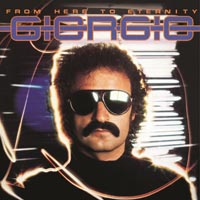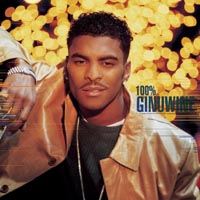2024-01-19
The Unlikely Truth About Brian Eno's Singing Ability
We all know Brian Eno as the renowned British music producer, composer and recording artist who has shaped our lives with his creative vision. But while he may be widely celebrated for his some of most innovative avant-garde compositions, there is one very important element of his work that tends to get overlooked: he's NOT a great singer! That's right; the mastermind behind such iconic songs like 'Baby’s On Fire' and 'The Big Ship', isn't known for having powerful pipes or an especially melodious singing voice. So if you were ever wondering why so many of his records only feature instrumental performances, it may just have something to do with this small but oh-so-important musical shortcoming. Join us as we take a light-hearted look at Brian Eno's music artistry - warts and all!
Brian Eno is a household name in the music industry. He is known as an outstanding music producer, composer, and recording artist. His signature sound is all about experimentation, and his contributions have changed the face of music forever. When we think of him, we often celebrate his high level of creativity, but there is one element of his work that often gets brushed aside - his singing. The truth is, he isn't known for his vocals, yet his music has made such a significant impact on our lives. In this blog post, we'll take a more in-depth look at Brian Eno's career and how his singing, or lack thereof, has affected his work.
To understand why Brian Eno's singing is a topic of discussion, we need to look at his music catalogue. His first solo album, 'Here Come the Warm Jets,' was released in 1973 and featured several of his vocal performances. On the album, we can hear him blend rock and pop sensibilities, but one thing that stands out is his singing voice. It isn't just that his singing is unusual, but it's also quite unconventional by pop music standards. This singing style continued throughout Eno's second solo album, 'Taking Tiger Mountain (By Strategy),' which was released a year later. Critics recognized the album's musical innovation, yet they also felt that Eno's voice fell short.
Despite his limitations, Eno didn't halt his music career. Instead, he focused primarily on instrumental recordings, most notably on his ambient music albums. In 1975, Eno released 'Discreet Music,' which was a departure from his earlier rock-influenced work. The album was almost entirely instrumental music. Eno used synthesizers, tape manipulation, and various instrumentation to create a sound that was not driven by lyrics or vocals. The album was a critical success, and it led Eno to release several more instrumental ambient albums in the years that followed.
One thing that always stands out about Eno's instrumentals is the experimental nature of his music. Eno crafted music that was thought-provoking and spiritually moving. He would layer sounds in unusual ways and experiment with various recording techniques. In this way, he was able to generate a mood with his music that went beyond lyrics and vocal performances.
The last point worth noting is that Eno's singing wasn't without its admirers. In some circles, particularly the New Wave and the post-punk scenes, his unconventional vocals were seen as an aesthetic point of interest. In many ways, this represents the paradox of Eno's music - he is a celebrated artist not because he is great at everything related to music, but because he has always been a pioneer of cutting-edge ideas.
When it comes to Brian Eno's career, his uniqueness, creativity, and innovation will continually make him one of the industry's greats. Despite his lack of conventional singing ability, his contributions to music are as profound as anybody who has ever graced the music scene. The truth is, Eno was never afraid to think outside the box, and that's precisely why he has been an essential figure in the industry. So the next time you listen to one of his instrumental tracks, take a moment to think about the incredible musician behind it. He is a true genius in every sense of the word.
Brian Eno is a household name in the music industry. He is known as an outstanding music producer, composer, and recording artist. His signature sound is all about experimentation, and his contributions have changed the face of music forever. When we think of him, we often celebrate his high level of creativity, but there is one element of his work that often gets brushed aside - his singing. The truth is, he isn't known for his vocals, yet his music has made such a significant impact on our lives. In this blog post, we'll take a more in-depth look at Brian Eno's career and how his singing, or lack thereof, has affected his work.
To understand why Brian Eno's singing is a topic of discussion, we need to look at his music catalogue. His first solo album, 'Here Come the Warm Jets,' was released in 1973 and featured several of his vocal performances. On the album, we can hear him blend rock and pop sensibilities, but one thing that stands out is his singing voice. It isn't just that his singing is unusual, but it's also quite unconventional by pop music standards. This singing style continued throughout Eno's second solo album, 'Taking Tiger Mountain (By Strategy),' which was released a year later. Critics recognized the album's musical innovation, yet they also felt that Eno's voice fell short.
Despite his limitations, Eno didn't halt his music career. Instead, he focused primarily on instrumental recordings, most notably on his ambient music albums. In 1975, Eno released 'Discreet Music,' which was a departure from his earlier rock-influenced work. The album was almost entirely instrumental music. Eno used synthesizers, tape manipulation, and various instrumentation to create a sound that was not driven by lyrics or vocals. The album was a critical success, and it led Eno to release several more instrumental ambient albums in the years that followed.
One thing that always stands out about Eno's instrumentals is the experimental nature of his music. Eno crafted music that was thought-provoking and spiritually moving. He would layer sounds in unusual ways and experiment with various recording techniques. In this way, he was able to generate a mood with his music that went beyond lyrics and vocal performances.
The last point worth noting is that Eno's singing wasn't without its admirers. In some circles, particularly the New Wave and the post-punk scenes, his unconventional vocals were seen as an aesthetic point of interest. In many ways, this represents the paradox of Eno's music - he is a celebrated artist not because he is great at everything related to music, but because he has always been a pioneer of cutting-edge ideas.
When it comes to Brian Eno's career, his uniqueness, creativity, and innovation will continually make him one of the industry's greats. Despite his lack of conventional singing ability, his contributions to music are as profound as anybody who has ever graced the music scene. The truth is, Eno was never afraid to think outside the box, and that's precisely why he has been an essential figure in the industry. So the next time you listen to one of his instrumental tracks, take a moment to think about the incredible musician behind it. He is a true genius in every sense of the word.
Tag: Brian Eno, music artist, best songs, artist career
2025-01-22
Girls Aloud: The Rise, Criticism, and Unwavering Popularity of the British Girl Band
Girls Aloud are one of the most iconic and successful girl bands to ever come out of Britain. From their infectious pop songs to their fashionably daring style, they have certainly reignited a love for female-fronted pop bands all over the world...read more
2025-01-21
The Remarkable Influence of The Gipsy Kings in Music
From their remarkable sound to the diverse cultural influence, The Gipsy Kings have made an impressive impact on music over the years. From worldwide fame to creative innovation, there are a number of things that can be said about this group and its individual members...read more
2025-01-21
What genre is XXXTentacion?
Ever been stuck trying to explain what exactly you're listening to when someone asks about XXXTentacion's music? You're not alone! He wasn’t just an artist; he was a chameleon, effortlessly moving through genres and bending them to his will.
A Unique Sound That Defied Labels
When it comes to XXXTentacion's music, the usual genre boxes don’t quite fit...read more
2025-01-20
Giorgio Moroder: The Architect of Modern Production Techniques
Giorgio Moroder is one of the most influential figures in the world of music, known for being a pioneer of electronic dance and disco music during the 1970s. His influence can be felt throughout all kinds of genres today, from EDM to electro-pop and beyond...read more
2025-01-19
The Good and Bad of Ginuwine's R&B Career
When it comes to modern R&B music, few artists have had as an innovative a career as Ginuwine. He quickly rose in the ranks of R&B stars after his 1996 hit single “Pony” made it to number one on several Billboard charts...read more
SUGGESTED PLAYLISTS








